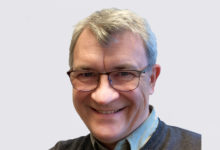Project 3 aims to improve understanding on the state of art and advance the academic and practical knowledge on business strategies and business models for REES in the Swedish industry.
The main focus is on how business models are being developed, what design methods do companies use today and how these compare to known methods and tools in the academic literature. The ambition is to advance the state of the art in design tools forbusiness models s by customising to give a high potential for REES.
Filling a gap
By drawing on business and management literature, product and service design and sustainability evaluations of different types of business models s this project fills the gap in knowledge about methods for evaluating businesses as well as for assessing design methods for devising business models s for REES.
The project will provide insights into the environmental, economic characteristics and policy conditions of sectors and value chains with high potential for REES investigated. Market drivers and barriers for companies to engage in the transition towards REES in Sweden, Europe and globally will be identified and structured. The diversity of existing strategies and models that claim to lead to resource efficiency will be mapped and different types of business models s and their elements will be assessed for the potential for REES.
Design models and tools
The project will also empirically identify what requirements on business strategies and models do Swedish companies have and what design methods and tools do they use for developing their business models. These design tools and the potential business models developed using them will be evaluated in terms of resource efficiency and sustainability in order to be able to provide generic insights into what are the steps and strategies that could lead other businesses to success in terms of REES.
The project comprises four work packages, which are designed in close working relations with participating companies and rely on interviews, workshops and focus groups as main data collection methods. Project 3 will provide answers to research question 4 generating knowledge of value to the program as such and providing input to project 5 that will explore issues of inter-relations between business models, design and policy for REES.
The results will be communicated to relevant international scientific communities (via journal articles and conference papers), to industry (via popular science articles, webinars and workshops), to policymakers (through policy briefs, presentations, and workshops), and to students in Swedish and international programs (through teaching activities and chapters in the REES textbook).
Involves companies: Attends Healthcare, Ericsson, HTC, Inrego, Off2Off, Polyplank, Qlean, Stena, Ståthöga, Volvo Cars och Volvo Group.
Researcher

Andrius Plepys, Assistant professor, International Institute for Industrial Environmental Economics, Lund University. Photo: Monica Westman

